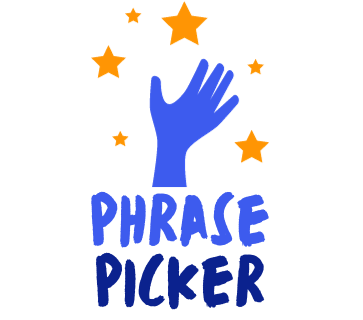Introduction
In the vast tapestry of linguistic communication, everyday phrases play a significant role in shaping our interactions. The phrase ‘see you then’ is one among these numerous expressions that has woven its way into standard English parlance. Known for its flexibility, it seamlessly merges into diverse conversations and contexts. This article delves into the intriguing usage of ‘see you then’ and furthermore, explores viable alternatives that echo the same sentiment but add variation to your communication style.
Key Takeaways
- Understanding the context of using the phrase ‘See you then’: This phrase is typically used in casual conversations to express the confirmation of a future meeting or appointment.
- Alternatives to ‘See you then’: There are many other phrases that can be used in place of ‘See you then’ depending on the formality and context of the conversation. Examples include ‘Catch you later’, ‘Till then’, and ‘Looking forward to it’.
- The importance of tone in using ‘See you then’: The tone in which this phrase is used can significantly affect the message conveyed. It can express eagerness, apathy, or indifference towards the upcoming meeting. Therefore, it’s crucial to match our tone with the intended message.
Other Ways to Say “see you then”
- See you later
- Till next time
- Until we meet again
- Goodbye for now
- See you soon
- Catch you later
- Take care, see you soon
- Meet you soon
- We’ll catch up later
- Looking forward to our next meeting
- Until then
- Be seeing you
- So long for now
- Until our paths cross again
- Until the next time we meet
A Refined Rendition: ‘Until We Meet Again’
In varying circumstances, one might choose to say ‘Until we meet again‘ instead of the more casual ‘See you then‘. This phrase carries a formal air, and it’s appropriate for both professional and personal situations. Use ‘Until we meet again‘ when you wish to convey a sense of anticipation and mutual respect. Perhaps you’re farewelling an esteemed colleague, or leaving a meeting with a client you’ve made a good rapport with. ‘Until we meet again‘ leaves a lasting, positive impression, portraying you as a professional who values their business relationships.
Dear Mr. Johnson,
I greatly appreciate the opportunity to meet with you and discuss our upcoming project. I am pleased to confirm our meeting scheduled for Tuesday, 10th March at 10:00 AM.
Looking forward to discussing this further and exploring mutual areas of interest. I look forward to our scheduled meeting.
Best Regards,
John Doe
How To Answer Formal
Responding to the phrase ‘See you then’ can be done in several formal ways. The appropriate response typically depends on the context of the conversation and the relationship between the speakers. When an associate says ‘See you then’, it implies a specified meeting or event in the future. A simple and direct response could be ‘Certainly, I look forward to it’, emphasizing your willingness and anticipation for the impending meeting. Alternatively, you could say, ‘Yes, until then’, acknowledging the set time.
Another possible formal reply can be ‘Yes, see you’. This response is very effective and expected in professional settings where the date and time of an event or meeting have been agreed upon. It is worth noting that the phrase ‘see you then’ indicates that there’s been a prior agreement or plan, so the response should maintain that context of acknowledgment and anticipation.
- ‘Absolutely, see you then’
- ‘Sure, looking forward to it’
- ‘Yes, until then’
- ‘Definitely, see you’
Dear,
I hope this message finds you well.
I am writing to acknowledge your previous email where you mentioned, ‘see you then.’ In response to this, I look forward to our scheduled meet-up.
Please let me know if there are any materials or information I need to prepare beforehand. Your cooperation is highly appreciated.
Best Regards,
[Your Name]
‘Catch you later’
A more relaxed variant of the phrase ‘see you then’ could be ‘catch you later’. You can use this in less formal situations such as with friends, teenagers or in a casual work environment. For example, if you are leaving a gathering and want to imply a future reunion without specifying the time, you can say, ‘We should do this again. Catch you later!’ This sentence variant is well-suited for situations where the timing is uncertain but the intent of meeting is clear. Another common situation is during casual, digital communication like emails or messages to friends, where you might say, ‘Got to go, catch you later.’ A more informal tone resonates with the addressee and creates a friendlier, lighter atmosphere.
Dear John,
I just wanted to confirm our meeting for next Monday at 10 A.M. Looking forward to discussing the project in more detail and hearing your thoughts.
Catch you later!
Sincerely,
Mike
How To Answer Informally
‘See you then’, a statement often used to confirm an event or meeting, can be responded to in a myriad of ways, particularly in a d informal context. This phrase typically establishes a shared understanding between two parties about a future rendezvous. While formal settings might require a more rigid, professional response like ‘Indeed, until then,’ or ‘Yes, see you then,’ an informal setting allows for a much more relaxed and even creative array of responses.
Imagine meeting a friend for dinner and they say, ‘See you then‘. You could confidently answer with phrases such as ‘Looking forward to it‘, ‘Yeah, can’t wait‘, or even ‘Let’s rock n roll!‘. Your responses can vary vastly depending on the tone and general atmosphere of the conversation. You can also embody excitement and anticipation in your response, reinforcing the positivity of the upcoming meeting.
- Yeah, see you!
- Catch ya later!
- Alright, it’s a date
- Alright, can’t wait!
- Great, see ya!
Hey there,
Thanks for your message! Awesome, see you then! Looking forward to our meetup.
Cheers,
Your name
Is It Correct to Say “see you then”?
At this juncture, you may be wondering, is it correct to say ‘see you then’? The straightforward answer is, yes, it is perfectly correct to use this phrase. Deriving from English colloquial speech, ‘see you then’ is a broadly accepted term used to confirm a future meeting or event.
Now, is it polite, rude, or general? ‘See you then’ is generally considered to be polite. It indicates that you are not only acknowledging the other person’s time but are also looking forward to the upcoming engagement. It’s a respectful way of confirming future plans and essentially says, ‘I value our meeting and will be there as agreed’.
A variation of this phrase could include ‘see you at that time’ or ‘until then’. However, each of these alternatives still carries the same essential meaning and tone as ‘see you then’.
In conclusion, ‘see you then’ is a phrase that is both correct and courteous to use. It maintains a friendly tone while providing confirmation of future plans. I sincerely hope that through this article, you’ve attained a clearer understanding of how to appropriately and effectively use the phrase ‘see you then’.



